Joseph Pearce recently had a provocative article published in the UK’s Catholic Herald, titled “A Christian Response to Europe’s Crisis.”1 Some might not know who he is, but he comes with a reputation and pedigree. He announces in the article itself that he was an active nationalist in the 1970s and 80s – holding high positions in the National Front of Britain and later the British National Party. He worked mostly in propaganda literature. However, he underwent a conversion process and became a devout Catholic. He re-evaluated his worldview and regards his nationalist days as misguided and clearly views some of the personalities he associated with as dangerous and immoral. He has gone on to become a significant author and editor, broadly associated with Christian Conservatism.
However, “A Christian Response to Europe’s Crisis” has generated a divided response among his readers, in spite of his (or perhaps because of his) clear disavowal:
Racism is always evil, as is any other manifestation of hatred towards our neighbours or our enemies. Christians can never espouse racism, nor can they support with a clear conscience parties that advocate racism.2
Some have sympathy with his conclusions and wonder exactly where he stands, hoping he will state a clearer case. Others are disappointed and see shades of his former life coming through in what some have terms his ‘alarming’ words. Many ‘alt-rightists’ may regard his writing as ‘cucked’. They might claim that he’s just another ‘liberal with lacunae’, he’s along for the ride with the liberal agenda except for the areas where it challenges his blind faith – usually the great life troika: abortion, euthanasia and gay marriage. This, however, would be selling Pearce way too short.
It ought to be remembered that Pearce is writing under persecution, and perhaps quite cleverly such that he is saying different things to different men. I want to explore some of the nuance and finesse that Pearce brings to the discussion of Europe and the so-called ‘refugee crisis’. Something has motivated Pearce to write this article. He clearly felt it was needed. I think the motivation becomes evident once we take a closer look at the text.
The first half of the article is a catalogue of political and electoral success of reactionary political parties in Europe. He doesn’t do so with joy – thus tempting many readers to view this piece in the light of any sympathy with liberalism. Adjectives such as “ominously” and “radical” are used – along with many cautionary phrases linking anti-immigration sentiment to the engine of crisis. Pearce is clearly concerned about where the ‘reaction’ in Europe is heading. He regards his past as qualifying him to make comment, because he is able to note similarities:
In a way, I could claim to have a more keen sense than most people of the way things are going in Europe. As an angry and disaffected youth back in the 1970s and 1980s, long before my subsequent change of heart and conversion to Catholicism, I had been a leading member of the National Front, which would later metamorphose into the British National Party. I was a member of the National Front’s executive council and its national directorate and was chairman of its youth movement, the Young National Front. I was sentenced to prison twice, in 1982 and 1985, for “publishing material likely to incite racial hatred”, an offence under the Race Relations Act. One of my closest friends was Nick Griffin, later to become notorious as the leader of the BNP. I was best man at his wedding and co-edited a magazine with him. Perhaps, therefore, it could be suggested that I might have a sense of déjà vu as I observe the turbulent times in which we live. In some ways I do. The similarities are striking. And yet in many ways, and perhaps in the most important ways, things are very different today.3
However, Pearce is being subtle. His past haunts him as much as it qualifies him. I argue that Pearce is being a brave man more than he is a ‘cuck’ and that he is challenging himself and his own conscience as much as any world view. Pearce is engaging in actual thought rather than espousal of opinion.
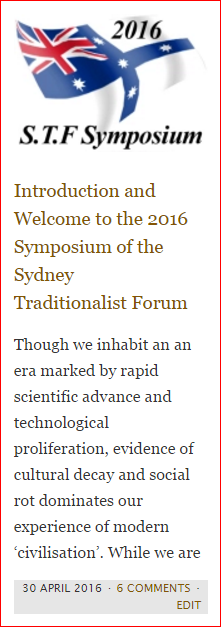 He describes the fears in Europe as being exacerbated by the “rise of the new right” then qualifies this with “what many would call the far right.”4 What we don’t see from Pearce is a clear labelling of condemnation. Most writers can, and do, throw around terms, to describe this political scene, such as ‘neo-nazi’, ‘fascist’ and ‘extreme.’ The phrase “far right” has become euphemistic. The way in which Pearce uses it, restores it to hyperbole where it belongs.
He describes the fears in Europe as being exacerbated by the “rise of the new right” then qualifies this with “what many would call the far right.”4 What we don’t see from Pearce is a clear labelling of condemnation. Most writers can, and do, throw around terms, to describe this political scene, such as ‘neo-nazi’, ‘fascist’ and ‘extreme.’ The phrase “far right” has become euphemistic. The way in which Pearce uses it, restores it to hyperbole where it belongs.
If you read his word choices carefully, his catalogue of political changes is more explanatory than condemnatory. His language recognises that these political movements ultimately reflect the opinion of the populace and he is sensitive to the fact that these represent genuine concerns of the average person in the street.
At this point we see Pearce do something quite courageous. It is also quietly courageous. He actually dares to leave the safe sanctuary of accepted modes of writing. When confessing his National Front past, and reminding his readers of his mea culpa, he describes the similarities between those times and these as “striking.” Importantly however, he adds this: “And yet in many ways, and perhaps in the most important ways, things are very different today”5 (emphasis added). Prudent readers will register that he is about to qualify the note of concern and the tone of apprehension he has thus far expressed in his article. After making the blunt statement that racism is always evil – and that as an article of faith – he goes on to make this crucial statement:
It is, however, unfair to suggest that anyone who is concerned about the Islamisation of Europe or about the endemic corruption and overarching imperialism of the European Union is either a racist or a xenophobe. Such language is the sort of thoughtless knee-jerk reaction that is the death of rational discourse.6
This is a bold assertion in these times and especially against Pearce’s own background. What he attempts to do here is to re-calibrate the debate. He aims to re-assert the proper use of terminology so that a rational discourse on civics can take place. What he does here is more or less destigmatise the reactionary right in Europe. This is a bold move. The liberals treasure their propaganda and their control of language as a function of it. In this article, Pearce has gone straight to the vault and taken the liberal’s secret weapon in an attempt to defuse it.
Then we next get a glimpse at the authority to whom he appeals. We know that Pearce views the world from a Christian perspective. So he tells us that when grappling with the “real nature” of the problem he looks to “Benedict XVI” and cites his “prophetic” Regensburg address.7 This is interesting. He doesn’t cite Pope Francis – he doesn’t even mention Pope Francis. Given the Pope’s recent statements that “the same idea of conquest” exhibited by ISIS could also be found in the Gospels,8 Pearce’s glaring omission is pointed. To me, this gives away Pearce’s motivation. He sees the desperate need for a corrective and a path of clear instruction for Catholics. He doesn’t think they are getting one at the moment. What he sees are Catholics being led by ideological movements. People have genuine concerns about very real and tangible fears, they are looking for answers, but not finding them inside their churches. This is a bold attempt at analysing pressing trends that have not attracted sensible and serious attention until very recently.
This is confirmed when he cites with tremendous sympathy the example of Fr. Jacek Międlar. Pearce cites him at length:
“Dearly beloved,” he said, “we’re not afraid of the peaceful Muslims, but they’re a minority. We’re afraid of fundamentalism. We do not want violence, we do not want aggression in the name of Allah … We must oppose it. We do not want the hatred that is in the Koran, in Surah 5 [expressed for Jews and Christians], but we want the love and truth of the Gospel. We want to fight with the sword of love and truth, to which St Paul the Apostle calls us in the sixth chapter [of the Epistle] to the Ephesians [6:14-17]. The Gospel, and not the Koran!”9
and further,
“Leftist and Islamic aggression aimed at everything Christian and national makes us very afraid. But we’re also afraid that our fear will turn into hatred. And we, as Christians, cannot let this happen. That’s why we, the Christians, want dialogue. But no one wants to talk to us, instead calling us fascists, racists, xenophobes, and infidel dogs. We can never allow this [succumbing to hatred]. We don’t want to fight with the hammer of hate they want to push in our hands … We want to fight with the sword of truth. With the sword of love! With the sword of the Gospel! With the Sword that is Jesus Christ, our living Lord and Saviour.”10
Pearce doesn’t question the Priest’s credentials as a man of God, nor the importance of his message. Yet he makes sure to tell us that this man is suppressed by his own church. The crescendo comes when Pearce makes the following refreshing and clear-sighted statement:
In a world of rising secular fundamentalism and rampant Islamic fundamentalism, what are we, as Christians, called to do? Do we say nothing? Wouldn’t such inertia and inaction in the face of the forces of evil and their destructive consequences constitute a mortal sin of omission? Might it not be mortal, not only to the individual soul who refuses to resist the evil, but mortal also to the culture he is called to defend? Isn’t a refusal to resist the culture of death itself deadly? Do we have the right to do nothing?11
This is a very powerful and faith based statement and a recognition of profound existential crisis. It has shades of Enoch Powell’s “Rivers of Blood” speech, with which Pearce is sure to be familiar given his political background. Powell of course was a deeply religious man, and was very cognisant of the dangers of racist ideology. He also questioned himself, and he foretold the “chorus of execration” that would follow his repeating (repeating mind you – not producing) conversations and concerns from those whom he was elected to represent as a member of the House of Commons. With confidence he concluded “I do not have the right not to do so” when it came to venting the fears of the people he was responsible to.12
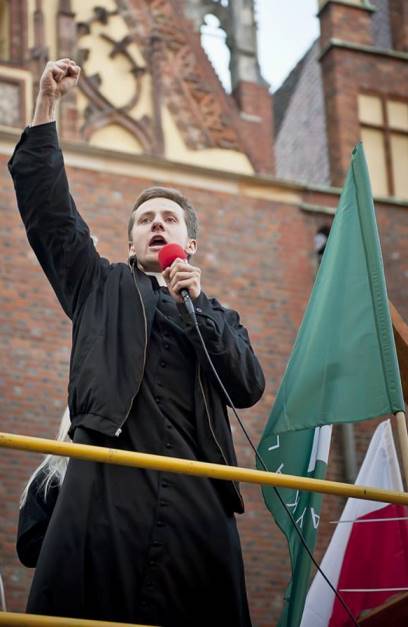
Fr. Jacek Międlar at Nationalist Rally, Poland 2016.
However, there is a much deeper heritage to this line of thought – one that Powell was no stranger to either. This concerned a question of civics – what it takes to be the good citizen and statesman. The worldview called upon here by Pearce is that of Cicero filtered through Augustine. The good citizen is called upon to protect the liberty of people through law. The good statesman is called upon to act with virtue, placing the interests of the common good before his own. The City of God cannot be realised in the City of Man, and being the good citizen is not the telos of the Christian. However, what Pearce’s understanding of civics suggests is that good Christians make good citizens.
Pearce is really making a call for leadership on this issue. He perceives a vacuum and is concerned about what may be filling it. He is not prepared to condemn sometimes crude rightist movements as ‘racist’ or ‘xenophobic’ but he expresses a note of caution based upon his previous experience. He knows that this is an opportunity for other kinds of materialist ideology to sprout roots. Such ideologies are not fit to answer the challenges presented by secularism and Islamism. He expresses if thus:
One is reminded of the famous line (who said it is uncertain) that all that is needed for the triumph of evil is for good men to do nothing. Racism is an evil which must be fought, but so is the secularist imperialism of the European Union. So, too, is the rise of Islamist violence in Europe. Such evils must be fought with the love of God and the goodness of His Gospel and not with the tools of hatred that the Devil delivers to those he calls his own. This is the real challenge: to fight evil without succumbing to evil in doing so.13
Alt-rightists at this point should ask themselves whether Pearce’s concerns differ so greatly from those of Julius Evola who was also concerned about the underlying materialism of the philosophies behind Fascism and National Socialism. He found them profoundly wanting.14 In a way, just as Augustine re-routed the thought of Cicero through the prism of Christ such that the Ciceronian wouldn’t end up idolising Rome itself, but rather something higher and transcendental, so too Pearce seeks to direct the thoughts of the Patrias in Europe.

Enoch Powell (b. 1912 d. 1998)
Pearce seeks a resurrection of Europe as a “Europe of the Faith” (a clear reference to Belloc) which suggests that he recognises that identity and culture and nation are very real and important things here in the City of Man – those necessary products of our fallen nature to have any hope of order. In doing so he no doubt realises that any attempt to build a united humanity based upon a belief that man can be perfected and a new ‘global man’ can become an ‘unfallen man’ is a direct challenge to the most ancient tenets of his Catholic faith.
He recognises that what is required is leadership. Strong leadership that is skilled in the arts of liberty, those civic arts that Cicero saw coming from the Princeps rather than the authoritarian dictator. The civic leader schooled in the arts over a long period of time who understands the traditions of his ancestors and why they are there. Evidently he doesn’t feel that the ‘Europe of the Faith’ has such leadership at the moment.
Pearce questions whether he is being the Utopian but stands firm that his “dream” is preferred to the “all-too-possible nightmare.”15 I am not sure whether Pearce regards the notion of Utopia as Kryptonite for Conservatives the way I do, but he may agree with me that Dystopia is potent food for the ‘moral imagination’ – indeed necessary in the twenty-first century. Orwell, Zamyatin and Raspail are now just as instructive as the greats of the literary Canon. They present to us the reality of existential crisis. Borrowing from Kirk, Pearce hopes to “rake from the ashes what scorched fragments of civilization escape the conflagration of unchecked will and appetite.”16

Russell Kirk (b. 1918 d. 1994)
The elephant in the Cathedral is the extent to which preservation of identity as Christians can challenge charity. To what extent can Caritas become an idol to which the whole faith becomes a sacrifice? Is there not some point at which inaction becomes malignant? These are the necessary questions for our time. For someone of Pearce’s specific background to make them does take true courage. He risks finding himself being viewed askance. People are likely to question exactly how far his past is behind him. Yet he is taking on those risks – not to mention his challenge to Catholic leadership for the sake of higher things.
Is not Pearce leading us by example and exercising the virtue of Cicero’s good statesman? Perhaps this is what he expects of political elites rather than platitudes and desperation to preserve the economic order above all things. His concern is that existing reaction is just that – reaction. What he seeks is a response from leadership that builds upon existing foundations, traditions and legacies. He wants a true restoration of European values, soaked in faith, that cohere, acknowledge and develop the deep intellectual heritage of the West. He eschews ideology but seeks, again as Kirk would describe it, the “unbought grace of life.”17
I would question whether Pearce is too cautious. He may indeed be underestimating the need for ‘home’ and ‘homeland’ and the necessity for reactive movements as catalysts for civilizational restoration in the current political and cultural deadlock. They may be the only alarm for the somnambulant. But one thing is for certain, there is absolutely no danger of Joseph Pearce ‘strappin’ on the boots’.
Luke Torrisi is a retired legal practitioner and now an academic researcher and host of Carpe Diem, Sydney’s only explicitly Traditionalist and Paleoconservative radio programme broadcasting on 88.9FM, between 8:00 to 10:00pm, Mondays.
Endnotes:
- Joseph Pearce, “A Christian Response to Europe’s Crisis” Catholic Herald (online) (Thursday, 19 May 2016) <catholicherald.co.uk> (accessed 22 April 2016).
- Ibid. at ¶ 14.
- Ibid. at ¶ 13.
- Ibid. at ¶ 1.
- Ibid. at ¶ 13.
- Ibid. at ¶ 14.
- Ibid. at ¶ 15.
- Pope Francis interviewed by Guillaume Goubert and Sébastien Maillard, La Crois (17 May 2016) <la-croix.com> (accessed 22 April 2016).
- Jacek Międlar quoted by Joseph Pearce op. cit. at ¶ 17.
- Jacek Międlar ibid. at ¶ 19.
- Joseph Pearce op. cit. at ¶ 20.
- Known as “the Birmingham speech” Powel’s address was delivered to West Midlands Area Conservative Political Centre on 20 April 1968. Some of the most controversial aspects of the speech were in fact quotations from correspondence he received from his constituents. For a discussion, see: Simon Heffer, Like the Roman (London: Weidenfeld & Nicolson, 1998) chapter 11. The quoted text appears on p. 451.
- Joseph Pearce op. cit. at ¶ 21.
- For his best known critique of these ideologies, see: Julius Evola, Notes on the Third Reich Christian Kopff (trans.), (London: Arktos, 2013) and Julius Evola, Fascism Viewed From the Right E. Christian Kopff (trans.), (London: Arktos, 2013).
- Joseph Pearce op. cit. at ¶ 22.
- Russell Kirk, The Conservative Mind From Burke to Eliot (7thed.; Washington: Regnery, 1995) p. 11.
- This is a phrase used by Russell Kirk repeatedly throughout a variety of his works, derived from Burke’s expression and Cicero’s notions of civics. A great summary of Kirk’s usage from an un-reprinted article can be found in: Bradley J. Birzer, “The Unbought Grace of Life” The Imaginative Conservative (online) (26 November 2010) <theimaginativeconservative.org> (accessed 22 April 2016)
Appendix (by SydneyTrads Editors)
The speech of Fr. Jacek Międlar, from which Joseph Pearce quotes in his Catholic Herald article, was given at the culmination of a mass rally of patriotic organisations on 11 November 2015. A video of the rally, as it traversed the main bridge over the Vistula River in Warsaw, can be found below:
Fr. Jacek Międlar’s speech, subtitled in English, follows:
https://www.youtube.com/watch?v=Hakb6S0IpgY
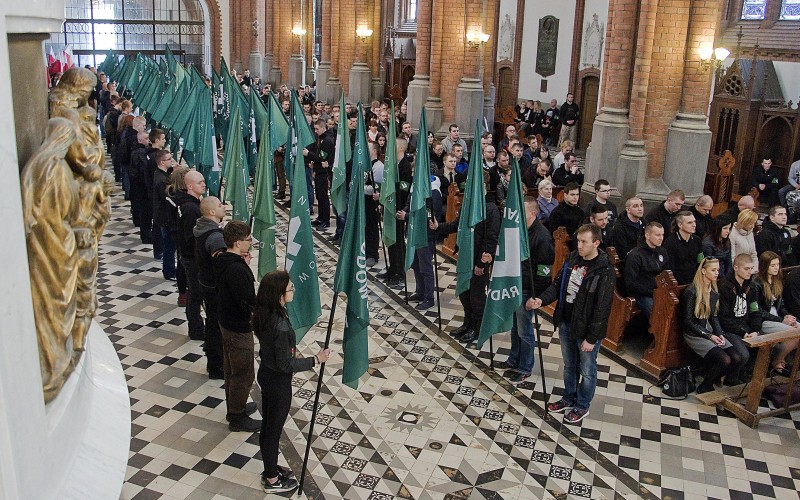
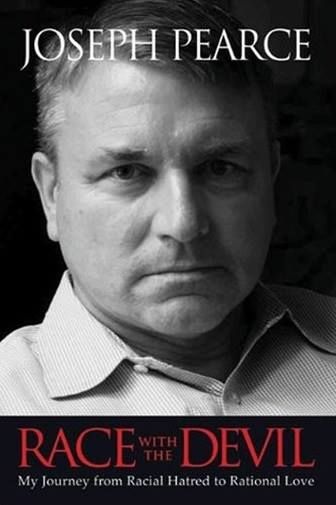

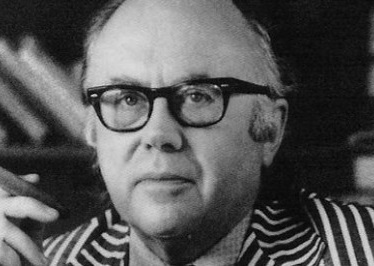

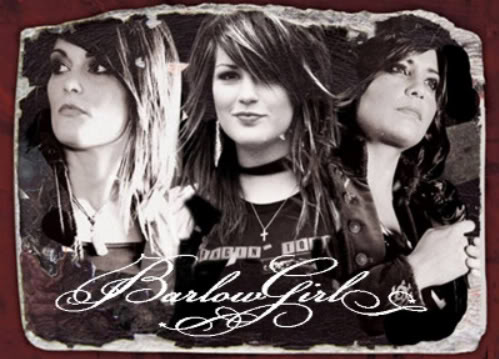
A Caritas without the virtue of Prudence is a flawed Caritas. I think there is a naive Christianity which doesn’t recognize the reality of Malice.
Indeed. It should be noted too that the Western political class has been warned of the threat of Third World identity politics as far back as 1964, as certain comments by B A Santamaria attest:
Pro-European-Civilisation Catholics (and Christians generally) need to wake up to the reality of tribal politics, which are beginning to redefine the social and political dynamic of Western multicultural states.
I’ve interviewed Joseph Pearce, he’s very approachable and unassuming. I bet he would be willing to be interviewed on your radio show Luke.